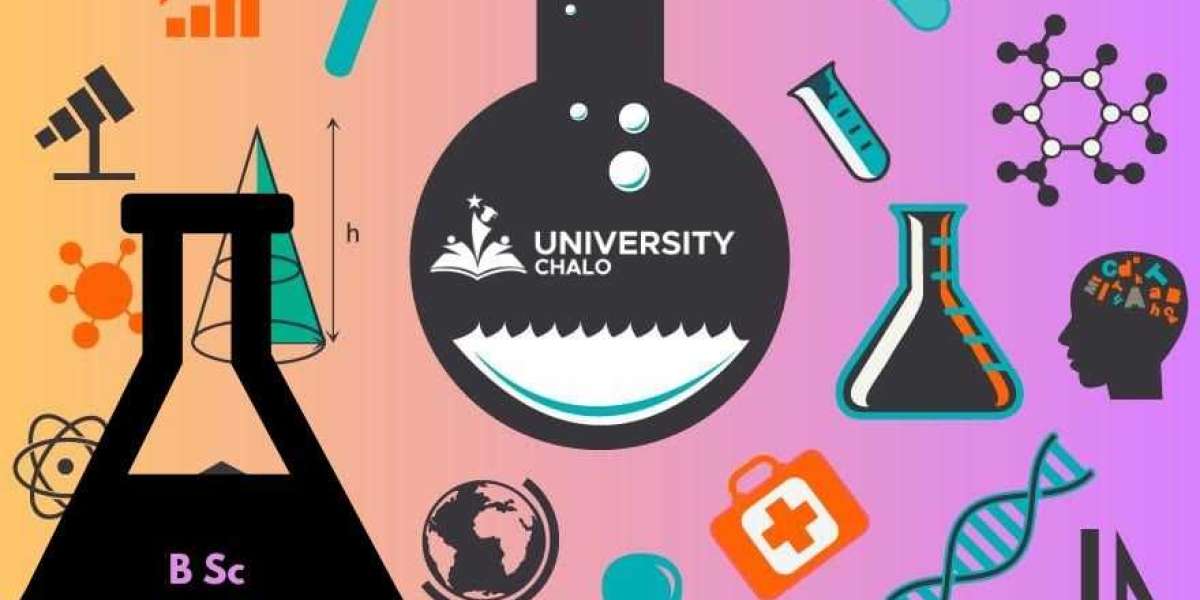In today’s fast-paced and ever-changing job market, a Bachelor of Science (B Sc) degree stands out as a powerful tool that equips graduates with essential skills and knowledge. Unlike degrees focused solely on specific professions, a B Sc provides a broad scientific foundation, making it a versatile qualification with numerous applications across various industries. This article explores how a B Sc degree can open doors to diverse career paths, demonstrating its value beyond traditional science roles and how it prepares graduates for success in a multitude of fields.
The Core Advantages of a B Sc Degree
A B Sc degree is designed to offer a comprehensive understanding of core scientific disciplines, including Biology, Chemistry, Physics, and Mathematics. This broad-based education fosters critical thinking, problem-solving skills, and a deep understanding of scientific principles. These foundational skills are highly transferable and valued across numerous industries, making a B Sc degree a versatile asset.
- Diverse Industry Applications
While traditionally associated with scientific and technical careers, a B Sc degree’s versatility allows graduates to pursue roles in various sectors. For example:
- Healthcare: Graduates with a B Sc in Biology or Biochemistry can pursue careers in medical research, clinical diagnostics, and pharmaceutical development. Their understanding of biological processes and lab techniques positions them well for roles in hospitals, research labs, and healthcare companies.
- Technology: A B Sc in Computer Science or Data Science opens doors to careers in software development, data analysis, and IT consulting. The technical skills acquired during the degree, such as coding and data management, are highly sought after in the tech industry.
- Environmental Science: A B Sc in Environmental Science equips graduates to work in environmental consultancy, conservation, and sustainability projects. Their expertise in ecological principles and environmental management is crucial for tackling global challenges such as climate change and resource management.
- Education and Research: Those with a B Sc degree can pursue careers in education, teaching science at various educational levels, or contributing to research projects in academic or industrial settings.
- Practical Experience and Skills
One of the standout features of a B Sc degree is the emphasis on hands-on laboratory experience. Students engage in practical experiments, data analysis, and the use of scientific equipment, gaining skills that are directly applicable to real-world scenarios. This practical experience is crucial for roles in research and development, quality control, and technical support.
- Pathways to Advanced Studies
A B Sc degree also serves as a stepping stone for further education. Graduates often pursue advanced degrees such as a Master’s or Ph.D. in specialized fields. For instance:
- Medical and Health Sciences: Graduates can pursue medical school, nursing, or public health degrees, leveraging their B Sc foundation to advance in healthcare professions.
- Engineering and Technology: Those interested in engineering can pursue advanced degrees in various engineering disciplines, building on their B Sc knowledge to specialize in areas such as biomedical, environmental, or software engineering.
- Research and Academia: A B Sc degree provides a solid foundation for academic research and teaching roles, with graduates often pursuing higher degrees to contribute to scientific knowledge and innovation.
Enhancing Career Prospects with Additional Skills
To maximize the potential of a B Sc degree, students and graduates can benefit from developing additional skills and experiences:
- Internships and Work Experience: Gaining practical experience through internships or part-time work can enhance employability and provide valuable industry insights.
- Certifications and Training: Pursuing relevant certifications or training programs can supplement the B Sc degree, making graduates more competitive in their chosen fields. For example, data science certifications can complement a B Sc in Computer Science.
- Networking and Professional Development: Engaging in professional networks, attending industry conferences, and participating in relevant workshops can help graduates stay updated on industry trends and build valuable connections.
The Role of Universitychalo in Guiding Career Paths
Universitychalo plays a crucial role in supporting students and graduates in making informed decisions about their educational and career paths. As an educational consultancy, Universitychalo offers:
- Detailed Program Information: Universitychalo provides comprehensive details about various B Sc programs, helping students choose the right course based on their interests and career goals.
- Career Guidance: Expert guidance on potential career paths and job market trends helps students align their B Sc degree with their professional aspirations.
- Application Assistance: Universitychalo assists with the application process for further studies or job opportunities, ensuring that students are well-prepared to advance in their chosen fields.
- Customized Support: Personalized advice and resources tailored to individual needs help students navigate their academic and professional journeys effectively.
Conclusion
A B Sc degree is more than just a foundational qualification; it is a gateway to a diverse range of career opportunities across various industries. By providing a broad scientific education and practical skills, a B Sc equips graduates to excel in roles beyond traditional science careers. For personalized guidance and support in leveraging a B Sc degree for career success, Universitychalo is an invaluable resource. With its expert advice and comprehensive resources, Universitychalo helps students make informed decisions and achieve their professional goals, ensuring that their B Sc degree translates into a successful and fulfilling career.








